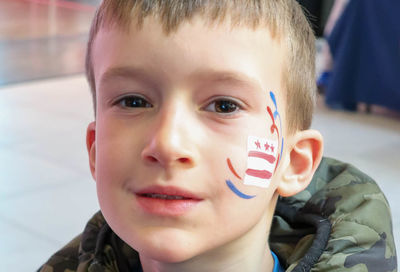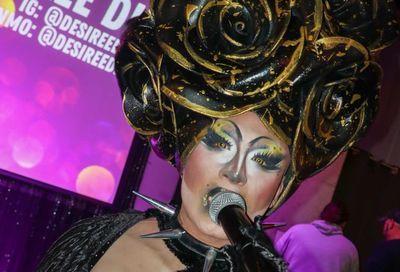Before He Can Marry
Commentary: Town Square
Forty years ago this week, Chief Justice Earl Warren wrote in Loving v. Virginia, ”The freedom to marry has long been recognized as one of the vital personal rights essential to the orderly pursuit of happiness by free men.” That landmark ruling overturning state laws against interracial marriage is an inspiration to many gay couples in their similar pursuit of equal protection for their relationships. But the gay version of Loving is probably still a generation away. This does not help me and my lover, Patrick, an African refugee living in Belgium.
Some D.C. marriage-equality advocates talk as if the recently ended GOP control of Congress was the only impediment to a District same-sex marriage bill. This ignores the bipartisan history of congressional actions against both gay rights and D.C. Home Rule. There is much work to be done across the country before the District can sustain such a bill.
An often neglected front in our local struggle is the persistent homophobia in some D.C. communities, recently seen in the anti-gay comments posted on Ward 5 listservs in reaction to the prospect of gay-oriented nude-dancing establishments moving into the ward. The religious certitude expressed by many opponents is not easily amenable to sweet reason. Nor is the essentially conservative nature of marital commitment any more likely to appeal to such dogmatists than strip clubs.
The prevalence of the down-low culture in one gay club event at a venue in Ward 5, and the lack of ads by that club in the gay press, reflects a separation borne of a hostile climate in the wider D.C. community. The challenge in changing that climate is underscored by the fact that many gay Washingtonians are not even aware that the club exists.
Let me tell you about a friend of mine by way of illustration. Joseph (not his real name) is a young black schoolteacher whom I got to know years ago as a fellow regular at a neighborhood restaurant. He was troubled by his homosexuality. Bowing to family and community pressures to marry a woman and raise a family, he broke up with his male lover and started dating a woman. He channeled his repressed passion into workouts and bicycle rides; but realizing that he was still gay, and not wanting to continue in a lie, he broke up with his girlfriend. He moved overseas for a few years and threw himself into development work.
Before he left town in 2003, I told my friend over dinner that he should follow his heart, that he could not escape who he was, that he would not be alone because there were people who loved him. It was hard to see such a good man suffering. We exchanged a few e-mails in the years that followed, but some conversations call for facing each other and breathing the same air.
I saw Joseph again last week in a sidewalk cafe, and we greeted each other warmly. I hope to sit down with him soon and do some catching up. He reminds me of what I am fighting for as an activist. He is as eligible a bachelor as I know; but before he can marry someone he truly loves and desires, he must free himself from the taboo against homosexuality in his community and family. Such freedom can come at a steep price.
Seeing Joseph again, so beautiful and so troubled, was a reminder that for all our progress, many of our brothers and sisters are not yet free. As we continue to push in legislatures and courts, and argue among ourselves about strategy, crucial work remains to be done in families and communities that no law or court ruling can do.
Meanwhile, we grow older. We cannot put our lives on hold while we wait for the world and our neighbors’ hearts to change. That is why Patrick and I committed to each other without waiting for anyone’s permission, without knowing how we would overcome the barriers caused by our holding different passports.
It occurs to me that I have never shown Joseph a picture of Patrick. Sometimes a simple photo can facilitate a conversation, a connection. Those personal connections, millions of them, are essential in our fight for equality-in our pursuit of happiness.
The Lovings did not set out to make history. They just believed in themselves and stuck to their guns. That’s what each of us must do, and encourage in one another, as the years roll mercilessly by.
Richard J. Rosendall is a writer and activist whose work has appeared on Salon.com and the Independent Gay Forum (www.indegayforum.org). He can be reached at rrosendall@starpower.net.
Support Metro Weekly’s Journalism
These are challenging times for news organizations. And yet it’s crucial we stay active and provide vital resources and information to both our local readers and the world. So won’t you please take a moment and consider supporting Metro Weekly with a membership? For as little as $5 a month, you can help ensure Metro Weekly magazine and MetroWeekly.com remain free, viable resources as we provide the best, most diverse, culturally-resonant LGBTQ coverage in both the D.C. region and around the world. Memberships come with exclusive perks and discounts, your own personal digital delivery of each week’s magazine (and an archive), access to our Member's Lounge when it launches this fall, and exclusive members-only items like Metro Weekly Membership Mugs and Tote Bags! Check out all our membership levels here and please join us today!


















